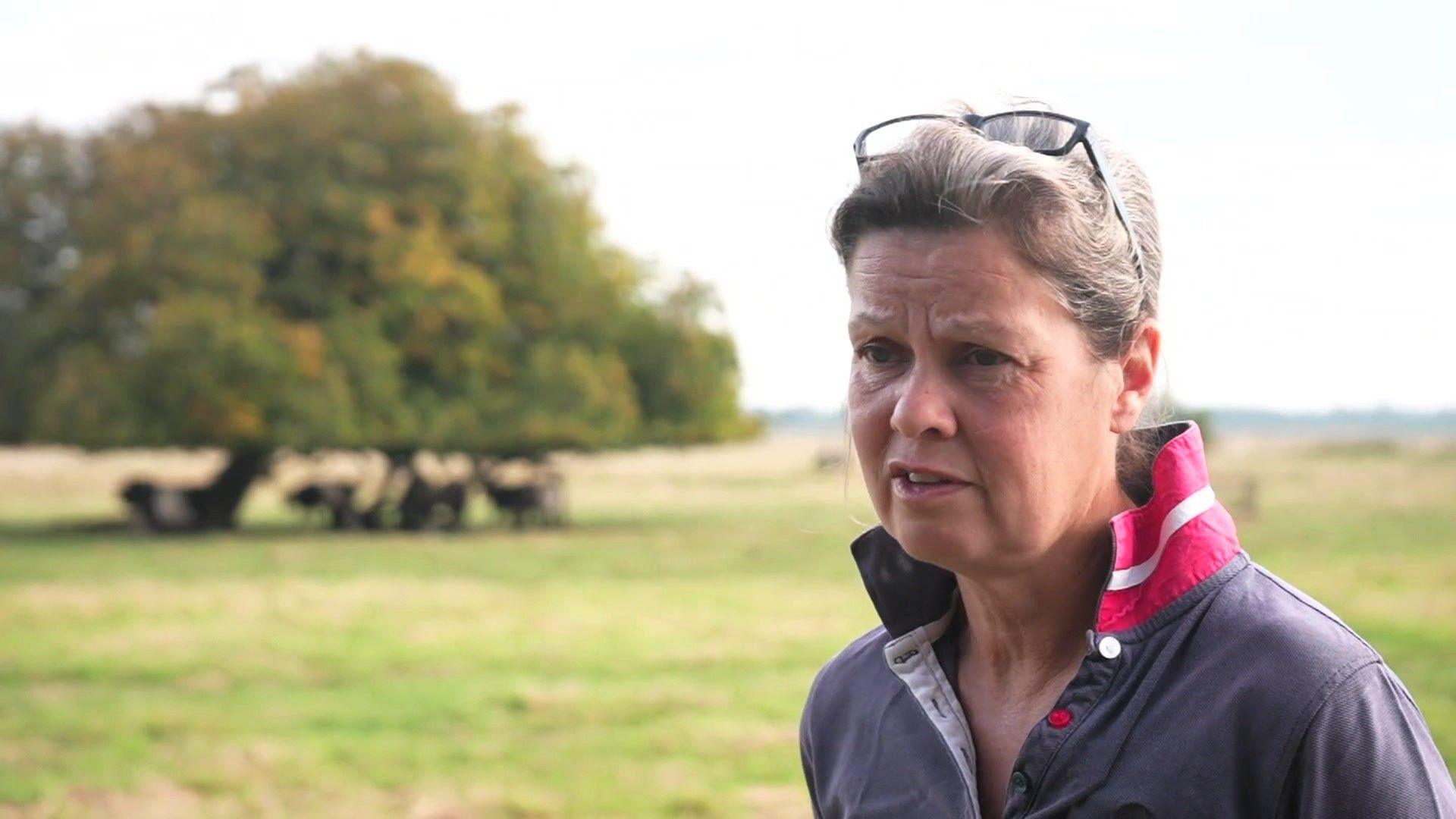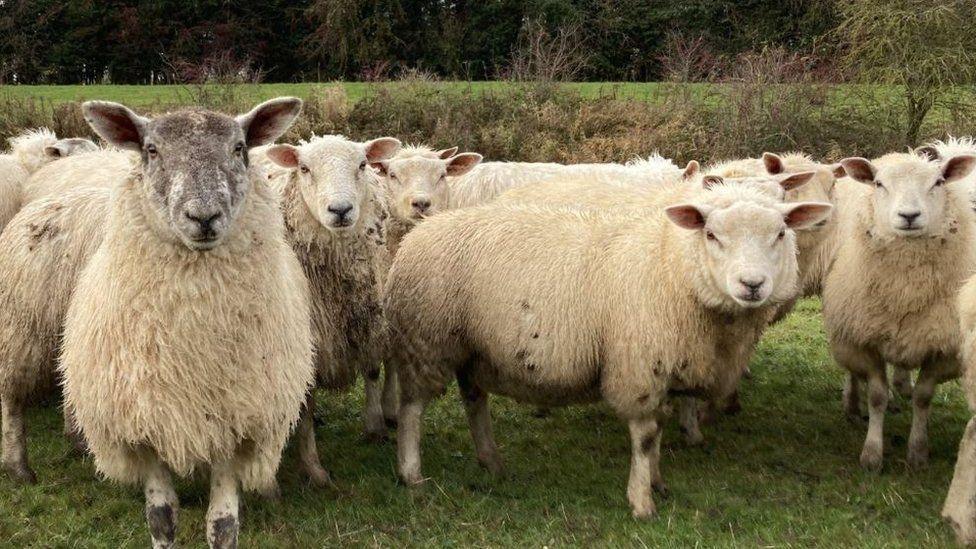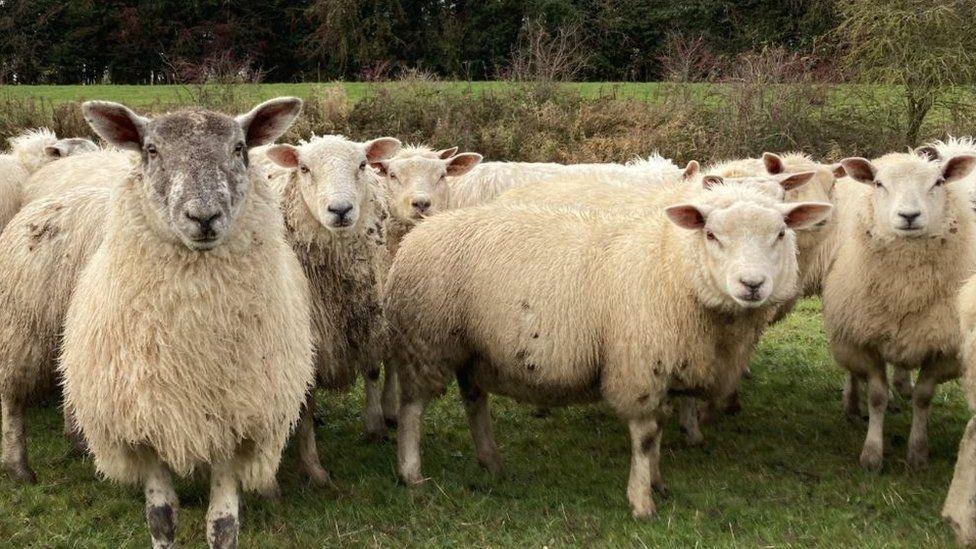'Bluetongue stressful for all involved' - farmer

Farmers including Nicola Chapman face new restrictions in a bid to limit the spread of the virus
- Published
A cattle farmer has described the latest case of bluetongue as "horrible" and "really stressful for everyone involved".
Nicola Chapman owns Carr Farm at Burgh St Peter, Norfolk, which lies within a new 20km (12.4 mile) temporary control zone (TCZ), which extends into Suffolk and restricts the movement of livestock.
It was put in place by the Department for Environment, Food & Rural Affairs (Defra) earlier this week after a sheep on a farm in Haddiscoe, external, Norfolk, tested positive for the virus.
Ms Chapman said her business was likely to be impacted by the restrictions in the autumn.
"We sell a lot of pedigree breeding stock and if they go out of the zone, which they do, they will have to be tested," she said.
"It creates a lot of stress. Obviously you don't want to lose your animals and you don't want to stress the animals by having loads of testing."
Bluetongue is spread by the bites of midges and can cause infertility and breathing problems in sheep, cattle and goats.
Defra said the disease could prove fatal for infected animals "in the most severe cases".
However, it does not affect people or food safety.

Defra says sheep are more likely to show obvious clinical signs of bluetongue than cattle
Ms Chapman said her farm fell within a similar TCZ last winter when there were 126 bluetongue cases across four counties in England.
Restrictions were lifted in February.
She said the latest restrictions meant she may have to move handling facilities, test cattle and cull animals.
"What can we do? We can't control midges," she said.
"Going forward, we're hoping there will be a vaccine but that's not going to happen this year – maybe next year."
Defra said surveillance was under way to determine if the virus was currently circulating in the UK.
However, given the current temperatures and midge activity, there was a "high risk of onward spread".
'A lot of infected midges'
Earlier this month, the UK's Chief Veterinary Officer Dr Christine Middlemiss, warned that the risk of bluetongue was "at its peak" due to warmer temperatures across the UK and Europe.
"The Netherlands are now having thousands of cases," she told the BBC.
"That means there are a lot of infected midges, so we are really concerned about them blowing over from the continent to our high risk counties, of which Norfolk is one of them.
"We know there's a lot of cattle grazing by the coast at the moment and it's really difficult to protect them."
Dr Middlemiss said she expected the risk of bluetongue to fall during the winter months.
Defra said high-risk counties included Norfolk, Suffolk, Essex, Kent and East Sussex.
A Defra spokesperson said: "Farmers should continue to monitor their animals frequently for clinical signs and report suspicion of disease immediately.
"They should also make sure their animals and land are registered with the Animal and Plant Health Agency so keepers can be kept informed and animals easily located."
Get in touch
Do you have a story suggestion for Norfolk?
Follow Norfolk news on BBC Sounds, Facebook, external, Instagram, external and X, external.
Related topics
- Published27 August 2024
